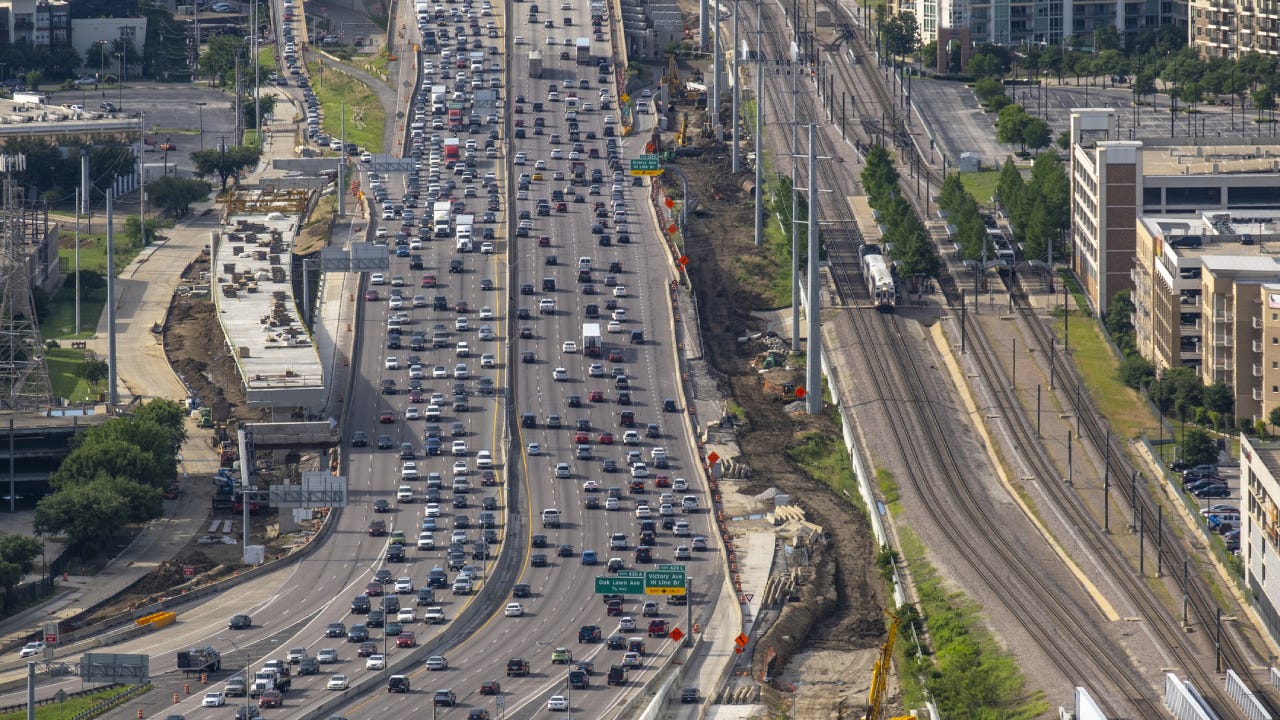Texas car insurance laws: What you need to know to drive legally

Driving in Texas requires more than just a vehicle. You will need to make sure that you are covered by insurance in order to legally drive in the state. Understanding Texas car insurance laws is essential for any driver to avoid the penalty for being caught without coverage that meets Texas car insurance requirements. If you are caught in violation of Texas auto insurance laws, you may face serious penalties, both in the form of a ticket and a higher car insurance premium. Bankrate’s insurance editorial team has laid out all you need to know about Texas car insurance laws so you can make sure that you meet the coverage minimums and are protected while on the road in the Lone Star State.
Car insurance laws in Texas
According to the Texas Department of Insurance, Texas car insurance laws require drivers to obtain liability car insurance and carry proof of it to show a police officer if requested.
Car insurance laws in Texas include the following stipulations:
- A driver must obtain and retain at least a minimum liability insurance policy, carry proof of the coverage and be able to provide proof of the policy to a police officer, upon request.
- Eligible teenage drivers in your household must be added to the policy (or face paying back-premiums later, denied claims or even non-renewal of your policy).
- An accident report must be filed with a police officer for any accident you are involved in with injuries or damages exceeding $1,000, or in which any driver is uninsured. It is typically best practice to call the police after an accident, exchange insurance information with the other driver, and immediately take photos of the accident scene (if it is safe to do so) and any damages incurred. If you leave the scene of an accident that has caused damages or injuries, it is considered a “hit-and-run accident” and you could face stiff penalties, including fines and jail time.
- It is illegal to file a fraudulent insurance claim.
If you lease or finance your vehicle, your lender will likely require you to carry full coverage car insurance, including comprehensive and collision insurance.
Liability insurance in Texas
Liability insurance is required in Texas, which means if you are in a car accident and determined to be at fault, you will be responsible for paying for repairs to the other person’s vehicle and/or medical costs associated with bodily injuries.
According to the Texas Department of Insurance, the minimum liability required is stated as 30/60/25 coverage, which indicates:
- Bodily injury liability: $30,000 per person and $60,000 per accident
- Property damage liability: $25,000 per accident
These minimum coverage types will fulfill your legal obligation to insurance laws in Texas. Insurance companies must also offer uninsured and underinsured motorist coverages, as well as personal injury protection (PIP), but these can be rejected by the policyholder in writing.
Liability insurance alone will not provide money to repair or replace your own vehicle, your own bodily injuries or the funds to rent a car while your vehicle is being repaired. Additionally, liability insurance is usually not enough coverage for most people unless you have access to a spare car or the funds to repair or replace your vehicle out of pocket. The minimum liability amounts also might not be enough to cover the total costs incurred in an at-fault collision, so additional coverage may be advised to limit your financial exposure.
Penalties for driving without insurance in Texas
It is important that you obtain and keep your car insurance up to date in Texas. Driving without valid insurance can result in severe penalties:
- If you are stopped by a police officer and do not have insurance (or are unable to produce proof of insurance), you could get a ticket ranging from $175 to $350 depending on your municipal court. After a conviction for driving without insurance, you’ll also have to pay a $250 surcharge each year for the next three years when you renew your vehicle’s registration.
- A second violation can result in a $350 to $1000 fine, a suspension of your license and registration, an SR-22 certificate (an insurance requirement for high-risk drivers), and the impoundment of your vehicle. High-risk drivers typically pay higher premiums and may have difficulty finding an insurance company who will cover them.
- If you are in an accident without insurance that causes damage or injuries, you could be responsible for paying for the other person’s vehicle damage, medical bills, lost wages and rental car fees out of pocket. You may also face a court case that could end up costing thousands of dollars. Texas and some other states have laws in place to protect against underinsured drivers, but while insurers are required to offer this protection, you may choose to reject it in writing.
Additional auto insurance coverage options in Texas
In addition to the state-required minimum, other car insurance coverage options in Texas can offer peace of mind and additional financial protection as it relates to your vehicle. Texas drivers may also want to consider some of these optional coverage types when purchasing car insurance:
- Collision – This covers damage caused by a collision with another vehicle or object (except animals).
- Comprehensive – This covers damage to your vehicle by non-collision (e.g. theft, vandalism, animal collisions or weather events).
- Gap coverage – This covers the difference between what you owe on a loan and the car’s cash value if you are in an accident and your car is totaled or stolen.
- Personal injury protection (PIP) – This compensates for medical bills for you and your passengers, in addition to lost wages and non-medical costs, regardless of fault. All Texas policies are required to include PIP coverage as an offering, but it can be dropped by refusing it in writing.
- Medical payments – This covers your incurred medical expenses while driving (or while riding in someone else’s car, walking or biking).
- Rental car reimbursement – This covers the cost of a rental car during the time that your car is being repaired, etc. up to certain limits.
- Roadside assistance – This service provides assistance during a breakdown (e.g. labor to change a flat tire or jump start a dead battery or provide a tow truck).
- Uninsured/Underinsured motorist – These coverage types cover your injuries if you are harmed by another driver who is not insured, is underinsured or in cases of a hit-and-run. All Texas policies have a $250 deductible first. This coverage must also be offered by insurers, and can be rejected in writing by the policyholder.
Frequently asked questions
-
-
To find the best car insurance company in Texas, you will first need to determine your individual insurance needs. Every company is different, so it is important to request quotes from multiple companies before you choose the right policy for you. When you are shopping around and comparing rates, take into account available discounts, coverage customizations and customer service or financial strength ratings from sources like J.D. Power and AM Best to get the full measure of an insurer.
-
The cheapest car insurance company in Texas depends on the type of policy you are seeking. Full coverage will cost more than minimum coverage, so it’s worth comparing rates from several companies. Additionally, the cheapest car insurance company may not always be the best option for the cheapest insurance – many companies these days offer discounts you can take advantage of to drive down the price of your premiums.
-
The cost of your Texas car insurance policy will vary based on several factors including your age, specific location, driving record, insurance history, elected coverage types and your vehicle make and model, among other factors. The average premium for minimum liability insurance in Texas is $760 per year, while the annual average for full coverage is $2,637, according to our April 2024 analysis of quoted rates from Quadrant Information Services. To find the best, most affordable policy for your situation, shop around and compare rates from several different insurers.
-
No, Texas is not a no-fault state. Instead, it follows a traditional tort system for auto insurance, meaning the at-fault party in an accident is responsible for covering medical and other expenses after a crash. This system allows individuals to pursue compensation from the at-fault driver’s insurance company for medical expenses, lost wages and other damages resulting from the accident.
-
Why we ask for feedback Your feedback helps us improve our content and services. It takes less than a minute to complete.
Your responses are anonymous and will only be used for improving our website.






